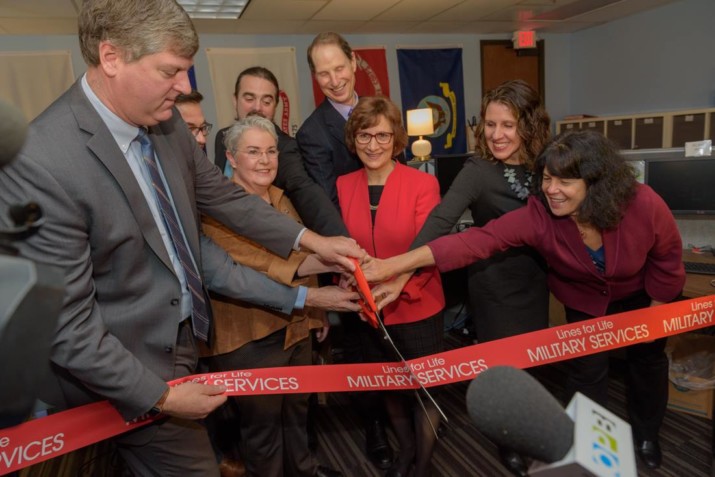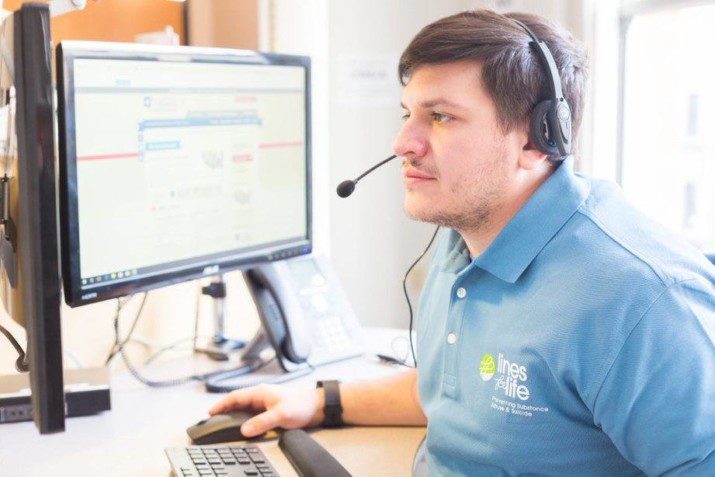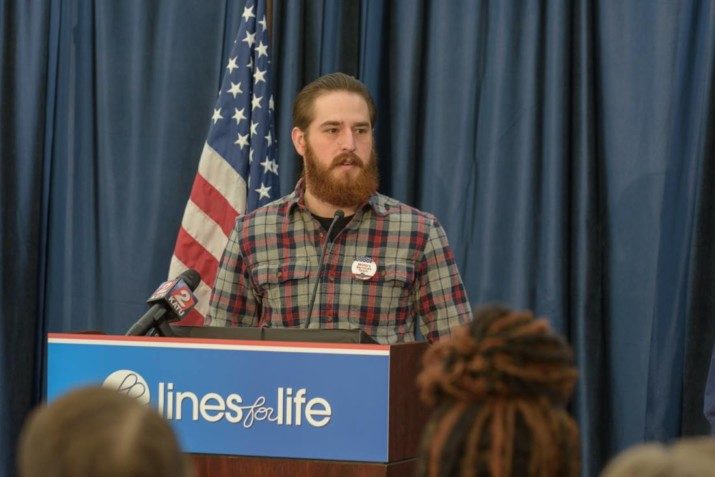
Lines for Life Expands Service for Veterans Struggling With Mental Health Issues
Portland, OR. Lines for Life cut a the ribbon on a new call center that’s designed to support veterans nationwide. The nonprofit is expanding the Veterans Crisis Line (VCL). On hand for the November 9th ribbon cutting were Senator Ron Wyden, Congresswoman Suzanne Bonamici, Chair Deborah Kafoury, Commissioner Sharon Meieran, Lines for Life CEO Dwight Holton and VCL team leadership and staff. Dwight Holton thanked the leadership of Senator Wyden who was instrumental in securing a contract with the National VCL and recognizing the Lines for Life team both in Oregon and in DC.

Ryan joins several members of a new 30 person team with connections to Military Service. Their dedication and experience provides common ground for callers in crisis.
Lines for Life, a 24/7, 365-days-a-year suicide prevention hotline. The Veterans Association estimates that since 2008, roughly 6,ooo veterans kill themselves each year. This new call center, in partnership with the Veterans Crisis Line, is expected to field about 1,200 additional calls each month.
Lines for Life CEO Dwight Holton explained, “Services like this where we’ve got partnerships with national VA and organizations like Lines for Life are essential to helping meeting those mental health crisis needs and helping folks find a way forward and help build strong families among our veterans.”
There is a strong need to help care for the mental health of America’s veterans. According to the RAND Center for Military Health Policy Research, 20 percent of those who served in either Iraq or Afghanistan suffer from either major depression or post-traumatic stress disorder.
If you are a veteran in need, contact the free military help line at (888) 457-4838. You can also text MIL1 to 839863. Someone is available to talk to you at all hours of the day.
















